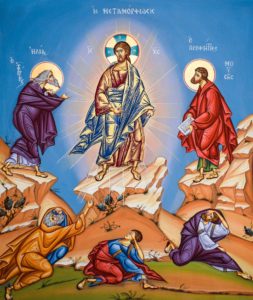
His goodness and wisdom wants to be known. It is the discovery by God to humanity. This is
commonly known as the divine Self Revelation of God. The term revelation comes from the Greek term ‘apokalupsis,’ meaning “unveiling” or “disclosing.” By God’s Self Divine Revelation, we mean His own “unveiling Himself.” This unveiling Himself is the free “Self-disclosure of God” to humanity. The Dogmatic Constitution on Divine Revelation of the Second Vatican Council (Dei Verbum) states;
It pleased God, in His goodness and wisdom, to reveal Himself and to make known the
mystery of His will (cf. Eph. 1:9).
And so, Divine Revelation means His divine initiative to reveal Himself to us along with His plan of
salvation that He has for us in Christ. In fact, God’s Divine Revelation takes place all the time as the Psalmist sings;
“The heavens tell out the glory of God, heaven’s vault makes known His handiwork. One day speaks to another, night to night imparts knowledge, and this without speech or language or sound of any voice.” (Psalm 19: 1-3).
This Self-disclosure of God can be either oral or written. Written in the sense, usually it is restricted to their written aspects. And they are the contents of Holy Scriptures. For the Judeo-Christian tradition, God’s self-disclosure or His Special Self-revelation began with the call of Abraham. Then, it continued gradually to the people of Israel by deeds and words of God. God
continued to inspire the patriarchs and then the prophets in order to record those deeds and their interpretations for future generations. For Christians, this Self-disclosure of God reached
its high point in His only begotten Son Jesus. Therefore, the whole Bible is the normative testimony to this divine revelation of God.
We can come to know God and His plan of salvation for us through human reason to certain
extent. As Catechism of the Catholic Church states human reason is our power to think and reflect (CCC 33). We come to know the existence of God through our power of thinking and reasoning. It is through analyzing the wonderful creation of God, the laws and purposes of its nature, the degrees of perfection in the whole universe, motion, cause and effects, and the order and design of the entire universe. Again, the Catechism of the Catholic Church states that the faculties of human beings make themselves capable of coming to the knowledge of a personal God (CCC 35).
However, without the help of God, our human reason is in itself alone not sufficient to discover
everything that God wants us to know about Himself and our relationship with Him. The well-known mathematician, philosopher, inventor, and the writer on religious ethics, Blaise Pascal, did experience a life-threatening accident in 1654. The religious conversion that he underwent through this accident, led him to write about religious ethics and beliefs. In his observations, he noted, “We arrive at the truth, not by the reason only, but also by the heart.” Therefore, without the help of God, we may not be able to figure out God’s plan for us on our own (CCC 35 -38). As Catechism notes;
…, man experiences many difficulties in coming to know God by the
light of the reason alone (CCC 37).
The only way we could have discovered God and our relationship to Him is from Him alone. Further, God’s Self Revelation is a free gift from Him. Christians believe that God freely chose to communicate Himself to His people. It gives us a share in the divine knowledge of God. Further, this sharing of God with us about the truths of Himself transcends our lives and human understanding of it. For us Christians this revelation means the self-revelation of God in the history of Israel.
— Fr. Niranjan Rodrigo, Ph.D

You must be logged in to post a comment.